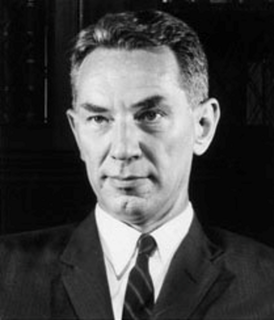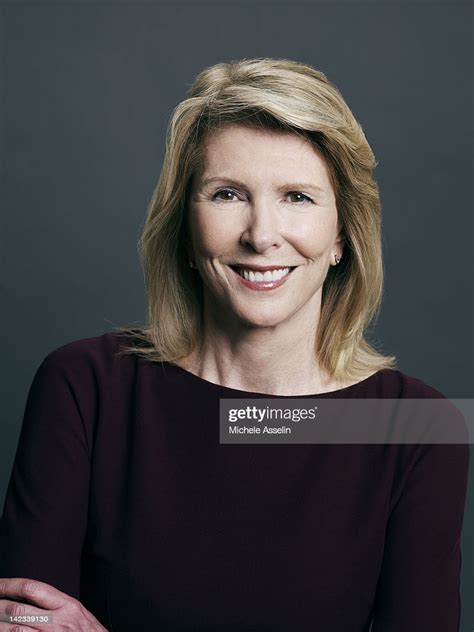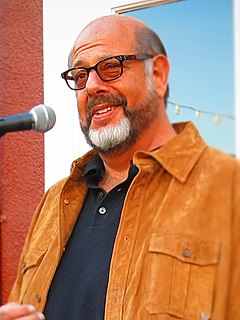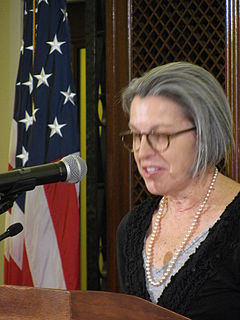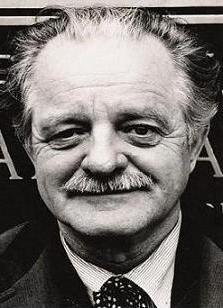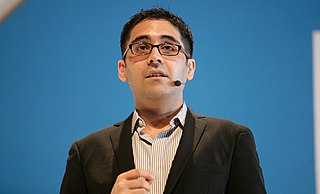Top 467 Radically Quotes & Sayings - Page 8
Explore popular Radically quotes.
Last updated on December 11, 2024.
Nothing lasts forever, whether it's Greece, Rome or the British Empire. It doesn't mean that America has to end. The country could be reshaped and reimagined in a way that is even more democratic and less imperial in nature. We're trying to radically reshape the nation in ways that are more just and fairer. That's what I mean when I say that empires eventually fall. I'm not calling for the end of America. I'm just calling for a reimagination of its democratic possibilities.
Absolutely delightful, at first for its unspoiled picture of late-nineteenth-century Japan as seen through the eyes of three remarkable but very different Americans, [the missionary William Elliot Griffis [1843-1928], the scientist Edward Sylvester Morse [1838-1925], and the writer Lafcadio Hearn], and then for the marvelous reconstruction of how Japan worked on their minds, radically changing their perceptions of the country and the whole relationship between East and West--between the barbarian and the civilized. The book is a tour de force.
In terms of getting people to experiment more and take more risk, there are at least three things that immediately come to my mind. Number one, of course, is role-modeling it yourself. Number two is when people take intelligent, smart risks and yet it doesn't work out, not shooting them. And number three, being honest with yourself. If the culture you have is radically different from an experiment and take-risk culture, then you have a big change you going to have to make—and no little gimmicks are going to do it for you.
Laws which authorize and promote abortion and euthanasia are therefore radically opposed not only to the good of the individual but also to the common good; as such they are completely lacking in authentic juridical validity. Disregard for the right to life, precisely because it leads to the killing of the person whom society exists to serve, is what most directly conflicts with the possibility of achieving the common good. Consequently, a civil law authorizing abortion or euthanasia ceases by that very fact to be a true, morally binding civil law.
The modern-day gospel says, 'God loves you and has a wonderful plan for your life. Therefore, follow these steps, and you can be saved.' Meanwhile, the biblical gospel says, 'You are an enemy of God, dead in your sin, & in your present state of rebellion, you are not even able to see that you need life, much less to cause yourself to come to life. Therefore, you are radically dependent on God to do something in your life that you could never do.
Darwin was one of our finest specimens. He did superbly what human beings are designed to do: manipulate social information to personal advantage. The information in question was the prevailing account of how human beings, and all organisms, came to exist; Darwin reshaped it in a way that radically raised his social status. When he died in 1882, his greatness was acclaimed in newspapers around the world, and he was buried in Westminster Abbey, not far from the body of Isaac Newton. Alpha-male territory.
When Jesus warns us not to store up treasures on earth, it's not just because wealth might be lost; it's because wealth will always be lost. Either it leaves us while we live, or we leave it when we die. No exceptions....Realizing its value is temporary should radically affect our investment strategy.... According to Jesus, storing up earthly treasures isn't simply wrong. It's just plain stupid.
The dignity of the human person is a transcendent value, always recognized as such by those who sincerely search for the truth. Indeed, the whole of human history should be interpreted in the light of this certainty. Every person, created in the image and likeness of God (cf. Gn 1:26 28), is therefore radically oriented towards the Creator, and is constantly in relationship with those possessed of the same dignity. To promote the good of the individual is thus to serve the common good, which is that point where rights and duties converge and reinforce one another.
For me, the whole idea of the radically new is tied to a close reconsideration of older sources. I like to give myself over to those sources, as points of origin, in order to bring things forward. My approach requires me to internalize my sources as much as possible in the hope that new themes might emerge. The material has to be internalized in order for it to live again. Ultimately, paintings reveal themselves on the basis of what they are. They are inseparable from the physical process that goes into their making.
If we return abruptly to a Miocene-like climate, it's reasonable to think that we would experience a lot of extinctions, and maybe even a mass extinction in the long term. Would the life on Earth be radically different? Of course we can't say for sure, but I think a lot of it would look familiar. Like a lot of people, I worry a lot about whether marine mammals would survive, especially whales. Ocean acidification is one of the major killers in climate change events, and that makes the ocean a very inhospitable place.
I think oldest children have a different mentality or know that there were different expectations of them, and I was not only the oldest child - I was the oldest grandchild of 18 grandchildren. I definitely grew up feeling like there were a lot of people who expected me to do something. But it was a very conservative family, very conservative neighborhood. I'm talking mid- to late '60s when I was growing up there, and so if I had stayed in the Boston area, I think my life would have been radically different.
I must say that in my own mind, I think what's important is for us, as a society, to radically reduce the consumption of meat. This is more important than some fraction of us become moral saints and become vegetarians so it would be much better if we would reduce meat consumption by three quarters of each of us as an individuals would only eat one-quarter as much meat as we do now then that half of the population should become vegetarian. We should see this as a collective challenge rather than an issue about individual, moral period.
Rationally considered, nothing can be more absurd than the baptism of infants under any circumstances. No statement, no matter by whom it may be said to have been uttered, can make that true which is radically false. If an innocent child, unconscious of good or evil, irresponsible to God and man, incapable of thought or action, is not already, in accordance with Christian theology, a member of Christ, then no vicarious promise or priestly ablution can make him one. For if this were so, a similar ceremony under devil worship could make him a member of Satan.
The real truth - like anything, you have an idea about something you might write and it changes. People reflect on it or you get other ideas and maybe your original idea is radically different than how it ends up being. It's not a theorem. You don't sit down and prove something. You start with an initial idea and it grows and grows. The math of the narrative changes. In some ways your original document and what the film ends up being are quite different.
On the whole, my family had always adopted a reserved attitude toward Zionism; my great-uncle Edmond had acted on his own in generously supporting Jewish Palestine, for reasons more humanitarian and religious than political. But the devastation caused by the war and the extermination of six million Jews radically changed all of our former attitudes. The idea of a Jewish homeland acquired an intense emotional appeal; I myself became an ardent Zionist.
I agree that all kids of all colors love hip-hop. My point in writing the book was to raise questions about the ways the hip-hop generation and the millennium generation, both who have lived their entire lives in post-segregation America, are processing race in radically different ways than any generation of Americans. I think they have a lot to tell us as a country about ways of addressing race matters.
The voice-over world has changed radically in the time that I've been in it. It used to be this rather small, select group of people who did 90 percent of the work. Now it's kind of the reverse: 90 percent of the work is done by this very broad mix of people all over the country, and the guys who used to be the go-to guys are a much smaller percentage now. But there was this massive interest in voice-over as well as in the story, so I think that also added to the film's appeal.
The Realization of the Nondual traditions is uncompromising: There is only Spirit, there is only God, there is only Emptiness in all its radiant wonder. All the good and all the evil, the very best and the very worst, the upright and the degenerate- each and all are radically perfect manifestations of Spirit precisely as they are. There is nothing but God, nothing but the Goddess, nothing but Spirit in all directions, and not a grain of sand, not a speck of dust, is more or less Spirit than any other.
In the field of economics we maintain to this day some of the most primitive ideas, some of the most radically false ideas, some of the most absurd ideas a brain can hold. ... but all this give no uneasiness to the average brain. That long-suffering organ has been trained for more thousands of years than history can uncover to hold in unquestioning patience great blocks of irrelevant idiocy and large active lies.
The first idea of Captain Fantastic was a pretty radically different one. The genesis had to do with parenting and questions about parenthood and fatherhood specifically. I have two kids and I was grappling with what my values were and what I wanted to pass to my children. So I was positing different kinds of parents and different ways of parenting. I played with various ideas - very permissive parenting, very restrictive parenting and then I came up with the character of Viggo Mortensen, and much of it was aspirational, some of it was autobiographical.
The way that I feel about my Jewish identity has been really radically changed by events in life. Like, becoming a writer is one. Having children is another. And getting older and watching, you know, my parents and grandparents get older has been another, the seasons of - being witness to the seasons of life and wanting to have some kind of infrastructure to deal with it, to cope with them. Ritual has become more important to me as I've gotten older. It's not always religious ritual, but it often borrows from Judaism.
I found myself thinking about the distance between the 60s and today through certain moments. Like the Henry Flynt interview with Ubuweb founder Kenny Goldsmith, where he talks about how he was scarred by how proud John Cage was to be ignorant of popular music. Goldsmith says, "Nobody thinks twice nowadays about listening to everything!" Something that had seemed so uniquely, radically syncretistic in Flynt's day seems much more commonplace now.
The pretense that humans are superior to nonhumans is entirely unsupportable. I have seen no compelling evidence that humans are particularly more "intelligent" than any other creature. I have had long and fruitful relationshis with many nonhuman animals, both domesticated and wild, and have reveled in the bouquet of radically different intelligences - different forms, not different "quantities" that they have introduced to me, each in his or her own time, in his or her own way.
When God tells us to give extravagantly, we can trust Him to do the same in our lives. And this is really the core issue of it all. Do we trust Him? Do we trust Jesus when He tells us to give radically for the sake of the poor? Do we trust Him to provide for us when we begin using the resources He has given us to provide for others? Do we trust Him to know what is best for our lives, our families, and our financial futures?
For the system of government you fashioned including the very principles on which you based it, is increasingly obsolete, and hence increasingly, if inadvertently, oppressive and dangerous to our welfare. It must be radically changed and a new system of government invented, a democracy for the 21st century. For this wisdom, above all, I thank Mr. Jefferson who helped create the system that served us so well for so long, and that now must, in its turn, die and be replaced.
The true gospel is radically exclusive. Jesus is not a way; He is the way, and all other ways are no way at all. If Christianity would only move one small step toward a more tolerant ecumenicalism and exchange the definite article the for the indefinite article a, the scandal would be over, and the world and Christianity could become friends. However, whenever this occurs, Christianity ceases to be Christianity, Christ is denied, and the world is without a Savior.
We need to enact fundamental tax reform. The weight and complexity of our 73,000-page tax code are crushing everyday Americans. We need to radically simplify the tax code so that we can re-start the real engine of growth in our economy. That means our tax code needs to go from 73,000 pages down to about three pages.
Chloe Honum's brilliant first book The Tulip-Flame traces an identity forming within radically divergent but interlocking systems: a family traumatized by the mother's suicide, a failed relationship, the practice of ballet, a garden-each strict, exacting. And with 'a crow's sky-knowing mind,' Honum in every case transfigures emotion by way of elegant language and formal restraint. Chloe Honum is 'one astounding flame' of a poet, and I predict a long-lasting one.
We discovered, like infants opening their eyes for the first time, that God's coming upon earth out of love for us had radically changed the world, because he had remained with us. As we walked about the city, or traveled to different cities and countries, it was not the beautiful and interesting things around us that attracted us. Not even Rome's wonderful monuments and precious relics seemed so important. Rather, what gave a sense of continuity to our journeying through the world for Jesus, was His Eucharistic presence in the tabernacles we found wherever we went.
I think one of the both liberating and terrifying prospects from synthetic biology for example is that you are going to have all of these do it yourself biosynthetic labs where people are going to be playing with the software of life. We are going to have a new generation of artists that are going to be playing with genomes the way that Blake and Byron used to play with poetry. And when genomes are the new canvas for the artist, we might be able to radically upgrade the human species and the software of the biology of the human species.
Today we hear a great deal about Organizational Men, Mass Culture, Conformity, the Lonely Crowd, the Power Elite and its Conspiracy of Mediocrity. We forget that the very volume of this criticism is an indication that our society is still radically pluralistic. Not only are there plenty of exceptionalists who take exception to the stereotyping of the mass culture but that very string of epithets comes from a series of books that have been recent best-sellers, symptoms of a popular, living tradition of dissent from things as they are.
We must help all our young people to understand that ours is still a very poor country, that we cannot change this situation radically in a short time, and that only through the united efforts of our younger generation and all our people, working with their own hands, can China be made strong and prosperous within a period of several decades. The establishment of our socialist system has opened the road leading to the ideal society of the future, but to translate this ideal into reality needs hard work.
There's something arbitrary about taking a picture. So I can stand at the edge of a highway and take one step forward and it can be a natural landscape untouched by man and I can take one step back and include a guardrail and change the meaning of the picture radically... I can take a picture of a person at one moment and make them look contemplative and photograph them two seconds later and make them look frivolous.
[Grace] is given not to make us something other than ourselves but to make us radically ourselves. Grace is given not to implant in us a foreign wisdom but to make us alive to the wisdom that was born with us in our mother?s womb. Grace is given not to lead us into another identity but to reconnect us to the beauty of our deepest identity. And grace is given not that we might find some exterior source of strength but that we might be established again in the deep inner security of our being and in learning to lose ourselves in love for one another to truly find ourselves.
Many university presidents assume the language and behavior of CEOs and in doing so they are completely reneging on the public mission of the universities. The state is radically defunding public universities and university presidents, for the most part, rather than defending higher education as a public good, are trying to privatize their institutions in order to remove them from the political control of state governments. This is not a worthy or productive strategy.
The same people the Americans sent over - that we sent over to advise the Russians, we also sent over to advise the Poles about how to build a post-communist economy. Same people, same advice, with radically different results, which leads to suspicion it's not our advice which was the crucial variable. It was the Poles, on one hand, and the Russians on the other. The Poles succeeded; the Russians didn't. Don't blame us.
A party should not contain utterly incongruous elements, radically divided on the real issues, and acting together only on false and dead issues insincerely painted as real and vital. It should not in the several States as well as in the Nation be prostituted to the service of the baser type of political boss. It should be so composed that there should be a reasonable agreement in the actions taken by it both in the Nation and in the several States. Judged by these standards, both of the old parties break down.
There is no magic. Harry Potter was probably the last one. There are no Harry Potters in politics. There are people who should be hard working, admit their mistakes - and we made a lot of mistakes - make an honest self-critic but change what we did wrong. What did we do wrong? We built a state which is big, which is corrupted, which is a state which should radically change. What is Mr Tsipras saying - keep it as it is, so everything that is old belongs to him.
Yes, business really does change. 400 years ago, corporations were formed by royal decree. 300 years ago, many countries were powered by slave labour, or its closest moral equivalent. 200 years ago, debtors didn't go bankrupt, they went to prison. 100 years ago - well, business is largely the same as it was a century ago. And that's exactly the problem. Business hasn't changed, but today's array of tectonic global shocks demands a different, radically better kind of business. Yesterday's corporations visibly cannot meet today's economic challenges.
Wars always evolve over time, don't they? Iraq/Afghanistan is different than Vietnam, and Vietnam was different than Korea, and Korea was different than World War One, and so on. Some things remain the same, of course - one side fighting another over ideology or a patch of ground - but there are some aspects of combat life which differ radically than their predecessors.
When it becomes a part of every man's thinking that a single thought can change the polarity of our entire body toward either life or death - and can likewise change its entire chemistry toward increasing alkalinity or acidity to strengthen it or weaken it - or can change the shape of every corpuscle of matter in the entire body in the direction of either growth or decay - then the medical profession will radically change both its principles and its practices with the ailment of bodies.
The arrival of the Barbary pirates radically changed English attitudes. Instead of patriotic pirates plundering foreign cargoes and bringing them homes to enrich their countrymen, the 'Turks' were in the usual Mediterranean business of slave-raiding - and now the English were the victims. The West Country men suffered the heaviest, and did not appreciate the irony. The Newfoundland fishery, dominated by Devon ports, lost at least 20 ships in 1611 alone.
The iPod is clearly a tipping point (and I'm not quite sure it is a wholly positive development), because it is a revolution in the way that we consume creative property, which I would call art. It has radically changed the relationship between the artist and the audience, how money changes hands, and how much money changes hands. Music was the first, and books are coming next. The Kindle or some form of electronic book is clearly inevitable, and it will massively reshape how books are sold, who pays for them, and how they're consumed. It is going to be really fascinating.
We are persons whose bodies can be objectively studied according to the impersonal laws of physics but whose minds are subjectively experienced in ways science has not yet been able to fathom. In short, by radically seperating science from religion, we are not merely segregating two human institutions; we are fragmenting ourselves as individuals and as a society in ways that lead to deep, unresolved conflicts in terms of our view of the world, our values, and our way of life.
We don't have to remain in this radically destructive mind-set and institutional-set. We can change, and the natural order of things could emerge in all of our societal organizations-government, commerce, religion-it's right there, waiting to happen. I often tell people that every mind is like a room in an old house, stuffed with very old furniture. Take any space in your mind and empty it of your old conceptions and new ones will rush in, good or bad. So change is more a getting rid of rather than an adding to or an acquiring.
If we talk about changes of power in Russia, that has occurred several times in the past century. After Stalin came Khrushchev, who implemented his legacy quite radically, one could say. But there was no blood, nonetheless. After Brezhnev came Gorbachev. I'm not talking about the ones who were in power for only a short period of time. Gorbachev, too, left a very radical legacy.
It's curious that the Church has become the most tightfisted at the very time in history when God has provided most generously. There's considerable talk about the end of the age, and many people seem to believe that Christ will return in their lifetime. But why is it that expecting Christ's return hasn't radically influenced our giving? Why is it that people who believe in the soon return of Christ are so quick to build their own financial empires--which prophecy tells us will perish--and so slow to build God's kingdom?

